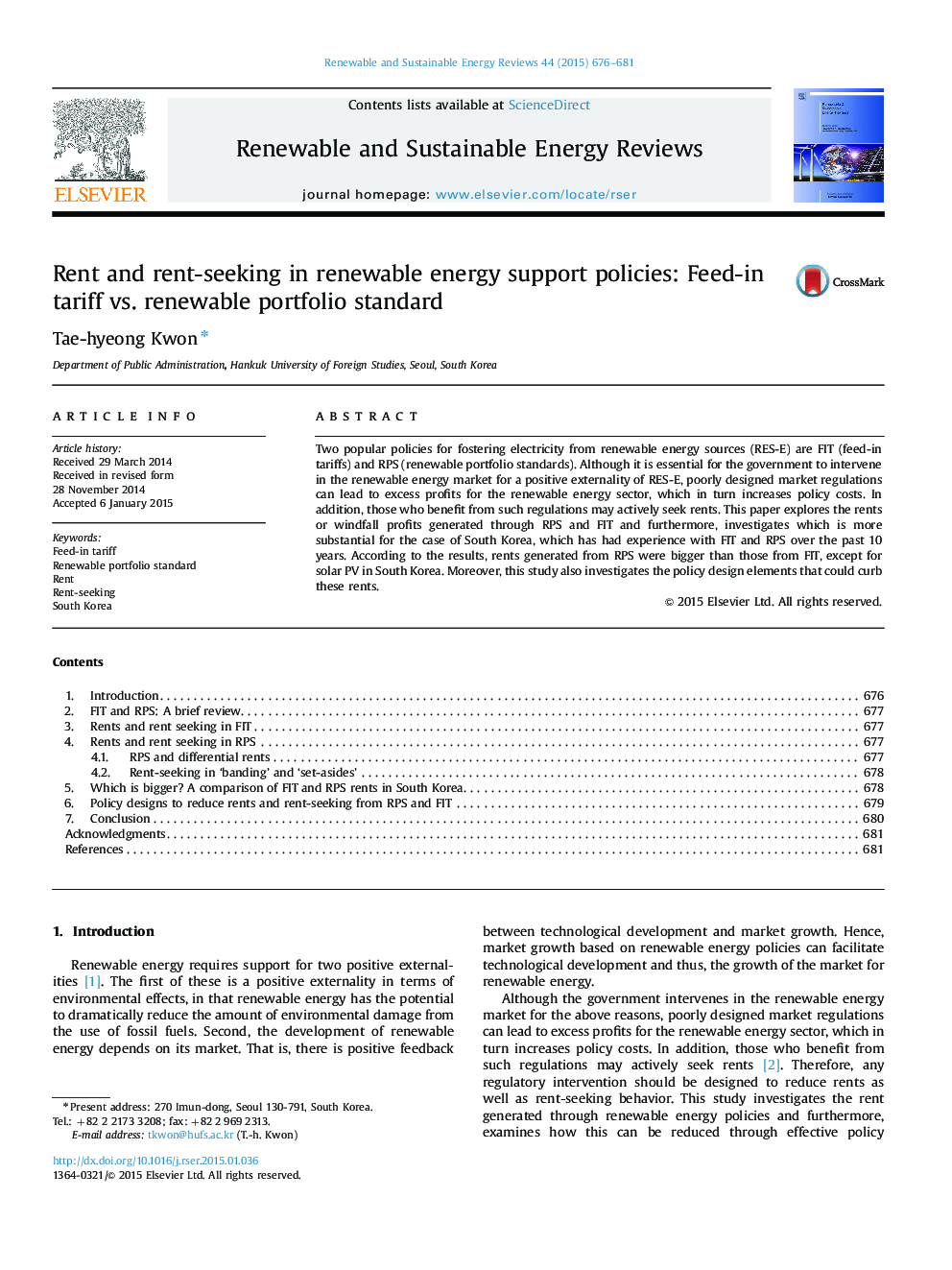| Article ID | Journal | Published Year | Pages | File Type |
|---|---|---|---|---|
| 8117434 | Renewable and Sustainable Energy Reviews | 2015 | 6 Pages |
Abstract
Two popular policies for fostering electricity from renewable energy sources (RES-E) are FIT (feed-in tariffs) and RPS (renewable portfolio standards). Although it is essential for the government to intervene in the renewable energy market for a positive externality of RES-E, poorly designed market regulations can lead to excess profits for the renewable energy sector, which in turn increases policy costs. In addition, those who benefit from such regulations may actively seek rents. This paper explores the rents or windfall profits generated through RPS and FIT and furthermore, investigates which is more substantial for the case of South Korea, which has had experience with FIT and RPS over the past 10 years. According to the results, rents generated from RPS were bigger than those from FIT, except for solar PV in South Korea. Moreover, this study also investigates the policy design elements that could curb these rents.
Related Topics
Physical Sciences and Engineering
Energy
Renewable Energy, Sustainability and the Environment
Authors
Tae-hyeong Kwon,
